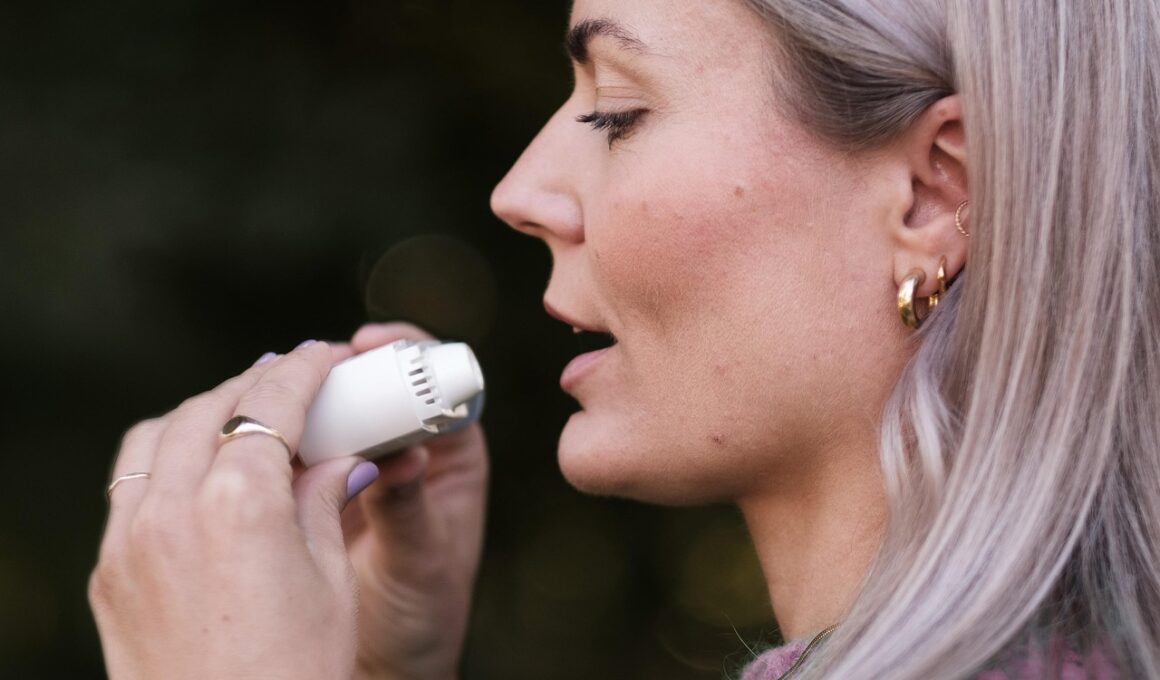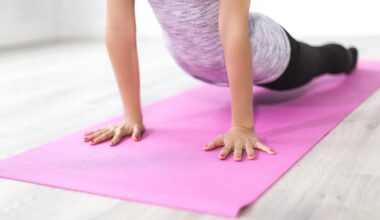Pulmonary Rehabilitation and Its Effect on Anxiety and Depression
Pulmonary rehabilitation is a comprehensive program that combines education and exercise to improve the physical and emotional well-being of individuals with chronic lung diseases. It aims to enhance the quality of life for patients facing debilitating respiratory ailments, such as chronic obstructive pulmonary disease (COPD), pulmonary fibrosis, and asthma. The psychological impact of these conditions cannot be ignored, as they often lead to increased levels of anxiety and depression among patients. Studies have shown that this rehabilitation process not only helps improve lung function but also alleviates mental health symptoms associated with chronic illness. By engaging in structured exercise and learning effective breathing techniques, patients gain control over their physical health. This empowerment translates into improved emotional health, contributing to reduced anxiety and depression levels. Moreover, rehabilitation involves support from healthcare professionals, fostering a community that promotes shared experiences and coping strategies. Research indicates that patients who diligently participate in pulmonary rehabilitation programs report lower instances of anxiety or depression, shedding light on the interconnection between physical fitness and mental well-being. Addressing both aspects is vital for holistic patient care.
The structure of pulmonary rehabilitation sessions typically includes supervised exercise training and education tailored to improve physical endurance and overall lung function. Highly trained professionals guide patients through tailored programs, which may involve walking, cycling, or strength exercises. Notably, incorporating physical activity in a supportive environment can significantly boost patients’ confidence and self-esteem. In addition to exercise, essential components of these programs involve educating patients about their conditions, risk factor management, and the importance of adhering to prescribed treatments. Patients learn about their diagnoses, guidelines for medication usage, and strategies for avoiding respiratory complications. This knowledge equips them to make informed decisions regarding their health. Psychological support also plays a pivotal role throughout the rehabilitation process. Counseling or group therapy sessions may be introduced to help attendees manage the mental burden associated with chronic lung disease. Engaging with peers who share similar experiences can create a sense of camaraderie that combats feelings of isolation. Such bonding has been shown to bolster not only emotional strength but also adherence to exercise programs, enhancing overall outcomes for pulmonary rehabilitation participants.
Furthermore, several research studies highlight the significant correlation between physical activity and mental health improvement in chronic disease populations. Exercise promotes the release of endorphins, which are chemicals in the brain that act as natural painkillers and mood elevators. This biochemistry translates directly to improvements in anxiety and depression symptoms among patients undergoing pulmonary rehabilitation. The consistent implementation of aerobic exercises, coupled with resistance training, yields remarkable results, leading to better emotional regulation and reduced feelings of distress. Moreover, activity-based interventions are highly adaptable to individual needs. Potential modifications can be made to exercise routines, thereby accommodating varying degrees of lung function and physical capability. Nevertheless, a common theme across rehabilitation programs is the emphasis on a gradual increase in activity levels, facilitating long-term patient adherence. Alongside physical training, mindfulness techniques, such as yoga and meditation, are sometimes integrated. Such practices not only reduce stress but also improve mental clarity, fostering a resilient outlook toward living with chronic illness, which is pivotal for managing anxiety and depression effectively. All these elements combined contribute to a more holistic approach to managing both physical and psychological challenges.
Impact on Quality of Life
The impact of pulmonary rehabilitation extends beyond the physiological realm, greatly affecting the quality of life among patients. Participants consistently express increased satisfaction with their daily activities, social interactions, and overall sense of well-being. Many individuals with respiratory diseases encounter limitations that significantly affect their social engagements and professional aspirations. Addressing these restrictions through rehabilitation programs can revive a sense of normalcy and purpose. By facilitating improved lung health and fitness levels, patients experience heightened stamina and energy levels in their daily lives. This newfound capability enables many to re-engage with family, friends, and active lifestyles they previously thought unattainable. Many studies affirm that patients completing rehabilitation programs are more likely to express a desire to return to work or partake in leisure activities. Enhanced social integration presents an opportunity for continued emotional support, which further alleviates feelings of anxiety and depression. Thus, pulmonary rehabilitation fosters a cycle of positivity, improving mental health outcomes while simultaneously enhancing physical health. As significant milestones are achieved, participating patients begin to view their conditions through a lens of empowerment, reinforcing their determination to thrive despite chronic illness.
Moreover, the customization of rehabilitation programs plays a vital role in addressing individual needs. This tailored approach effectively meets the diverse user requirements, thereby maximizing program efficacy. During initial assessments, healthcare providers gather comprehensive information regarding each participant’s medical history, existing health conditions, preferences, and lifestyle choices. This allows for a streamlined development of rehabilitation programs that align precisely with individual circumstances. Personalization introduces essential flexibility in delivering appropriate exercises and health education, accommodating variations in participant motivation levels and health goals. Often, regular evaluation and tracking of each patient’s progress during the program ensure that interventions remain relevant and inspiring. As participants witness tangible outcomes from their efforts, it fuels their motivation to adopt healthier habits and remain committed to their rehabilitation journey. Indeed, the psychological uplift associated with setting and achieving realistic goals fosters resilience in managing chronic lung disease. For many patients, success in rehabilitation results in adopting more rigorous self-care practices, contributing to improved mental health outcomes. Ultimately, personalized care paves the way for long-term strategies aligned with both mental and physical health.
Complementary Approaches
In conjunction with traditional pulmonary rehabilitation, complementary therapies have gained popularity as effective supportive strategies for managing anxiety and depression. Integrative health practices such as acupuncture, aromatherapy, and massage therapy have been reported to enhance relaxation and emotional stability. These therapies often work synergistically with physical training, contributing to a more comprehensive rehabilitation regimen. Engaging in activities that promote relaxation, such as mindfulness meditation practices, is essential for addressing anxiety and stress. Such therapeutic options provide individuals with tools to manage their emotional responses to living with chronic respiratory conditions. Additionally, exploring dietary changes to address nutritional deficiencies has proven beneficial, as a well-balanced diet can significantly impact both physical and mental health. Nutrient-dense foods rich in antioxidants and omega-3 fatty acids support brain health while also bolstering lung function. Collaborating with healthcare providers can lead to informed dietary choices that enhance recovery outcomes. Fostering a holistic approach to coping with anxiety and depression encourages patients to view their health from multiple dimensions, facilitating enhanced resilience. Overall, taking advantage of both traditional therapies and complementary strategies fosters a comprehensive health experience, helping patients enjoy enriched lives.
Lastly, realizing the importance of community support cannot be overstated in enhancing mental well-being. Peer and family support systems play a pivotal role in the mental health landscape of those with chronic conditions. Reintegrating social interactions into rehabilitation plans can significantly uplift patients’ spirits. Family members can offer encouragement and create an empathetic environment for patients coping with emotional distress. Healthcare providers can facilitate workshops or support groups where patients can share their stories and communicate their challenges. This collective sharing will fortify emotional resilience and foster connections. Social support has been heralded as a protective factor against feelings of isolation and withdrawal, often prevalent in chronic illness scenarios. Such initiatives create a safe space for discussions concerning mental health, as participants navigate their journeys together. Support groups further enable participants to acquire new coping strategies, realize they are not alone, and learn about innovative ways to manage their conditions. Ultimately, recognizing the significance of support systems propels individuals toward healthier mental states, underscoring the interconnectedness between emotional and physical recovery.
The intricate relationship between physical rehabilitation and mental health, particularly anxiety and depression, is becoming more evident as research evolves. There is substantial evidence that efficient pulmonary rehabilitation programs cater not only to physical challenges but also address psychological well-being. Ultimately, prioritizing a comprehensive approach is beneficial; customized therapies, enhanced social support, and complementary strategies pave the path to recovery. This allows individuals with chronic respiratory conditions to reclaim their quality of life, restore confidence, and establish appropriate coping strategies. Accordingly, fostering constructive environments supports the importance of ongoing rehabilitation beyond traditional means, driving lasting improvements for patients.


